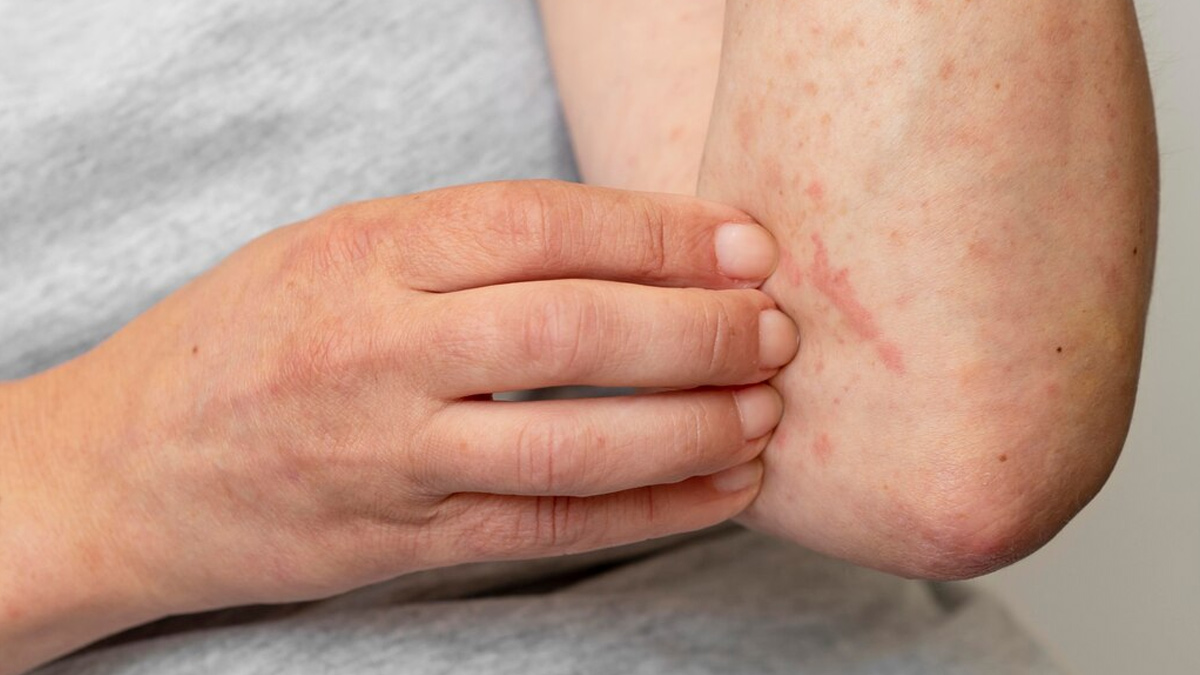
Chamomile tea, which is loved for its mild fragrance and calming effects, has been valued for ages as a natural solution for various health issues. However, did you know it can also help in the treatment of fungal diseases? These infections, caused by tiny fungi, such as yeast and moulds, can cause discomfort and persistent symptoms in different areas of the body. Here’s how chamomile tea can assist in managing this health concern.
Table of Content:-

Fungal infections are frequently occurring health issues caused by fungi that naturally inhabit our environment. These infections can affect the skin, nails, scalp, and mucous membranes, leading to symptoms, such as itching, redness, swelling, and discomfort. In severe cases, fungal infections can be persistent and challenging to treat, necessitating various approaches for management and relief.
According to a 2017 study, almost one billion individuals are thought to suffer from fungal infections affecting their skin, nails, and hair, with tens of millions also experiencing mucosal candidiasis. Additionally, over 150 million people contend with severe fungal diseases that significantly affect their quality of life or can even be fatal.
Benefits Of Chamomile Tea For Treating Fungal Infections

Chamomile is renowned for its anti-inflammatory, antimicrobial, and antioxidant properties, all of which contribute to its therapeutic potential in combating fungal infections.
Antifungal Properties
One of the key benefits of chamomile tea in treating fungal diseases lies in its antifungal properties. Chamomile contains compounds, such as bisabolol and chamazulene, which exhibit strong antimicrobial effects against fungi. These compounds can help inhibit the growth of fungi like Candida albicans, which commonly cause yeast infections.
Anti-inflammatory Effects
When fungal infections occur, they often bring along inflammation, which leads to uncomfortable symptoms like itching and irritation. Chamomile tea comes to the rescue with its soothing anti-inflammatory properties, helping to calm down the inflammation in affected areas and easing the discomfort linked with fungal infections.
Also Read: Chamomile Tea: Health Benefits And How It Provides Relief From Menstrual Cramps

Calming and Soothing Qualities
Chamomile tea is well known for its calming and soothing qualities, which can be beneficial for people experiencing stress-related fungal outbreaks. Stress reduces the effectiveness of the immune system, making the body more vulnerable to fungal infections. By promoting relaxation and reducing stress levels, chamomile tea indirectly supports the immune system's ability to combat fungal infections effectively.
Boosting Immune Function
Having a strong immune system is important for fighting fungal infections and stopping them from coming back. Chamomile tea has antioxidants like flavonoids and polyphenols that boost immune function and protect your body from stress caused by harmful substances. Drinking chamomile tea regularly can help make your immune system stronger, so it's better at keeping fungal infections away and keeping you healthy overall.
Also Read: Dealing With Body Ache? Here's How Chamomile Essential Oil Can Provide You With Relief
How to Make And Add Chamomile Tea To Your Routine
Chamomile Tea
Ingredients
- Dried chamomile flowers or chamomile tea bags
- Water
- Honey or lemon (optional for taste)
Instructions
- Boil water in a pot or kettle.
- Place dried chamomile flowers or chamomile tea bags into a teapot or mug.
- Pour the hot water over the chamomile.
- Allow the mixture to steep or infuse for 5-10 minutes to release the beneficial compounds.
- After steeping, strain the tea into a cup and sweeten it with honey or lemon if desired.
- Drink chamomile tea 1-2 times daily, preferably between meals or before bedtime for relaxation.
Cool Chamomile Compress
- For topical application, make a strong chamomile tea and allow it to cool.
- Next, take a cotton ball or clean cloth and dip it into the cooled tea.
- Apply the compress directly to the affected area and let it sit for 10-15 minutes.
- Repeat several times daily to soothe irritation and promote healing.
[Disclaimer: This article contains information for informational purposes only, hence, we advise you to consult your own professional if you are dealing with any health issues to avoid complications.]
Also watch this video
How we keep this article up to date:
We work with experts and keep a close eye on the latest in health and wellness. Whenever there is a new research or helpful information, we update our articles with accurate and useful advice.
Current Version